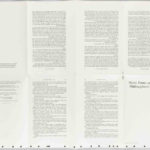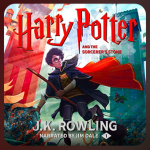Is Dolores Umbridge the weakest-drawn Harry Potter character?
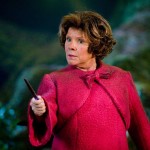
Apr 08, 2022
Books, Harry Potter and the Order of the Phoenix
One of the strengths of the Harry Potter series is the nuance with which its characters are drawn. No-one is all-good or all-bad. The best characters have their weak moments, times when they make bad decisions, lash out, behave selfishly, use bad judgment, behave immaturely, or say something hurtful that they regret. In other words, they are human and that realness makes them relatable and three-dimensional, not cartoonish or wooden. It makes it easier to build empathy for each character, and to care about them as the storyline progresses.
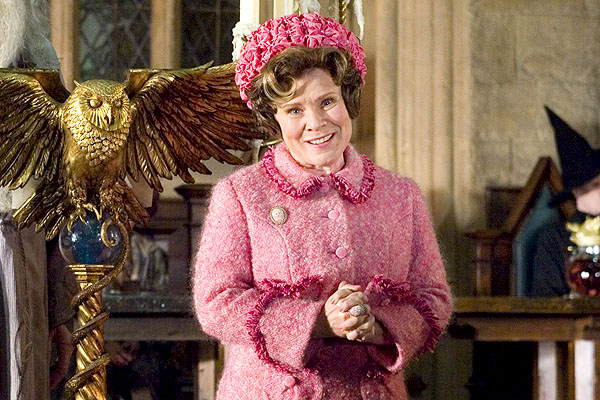
This ability to feel empathy, to humanise, is especially important for the bad guys, the Death Eaters and other assorted villains who are the antagonists of the story. Dumbledore helps Harry to see that both Dudley Dursley and Draco Malfoy are less villains than victims of parents who have mis-shapened their characters from birth. Neither character has a complete redemption, overcoming his upbringing, but both characters show some growth, responding to the kindness with which they are treated by people who pity rather than punish them for the awful parenting to which they were subjected. Harry saves Dudley from the Dementor’s kiss in Order of the Phoenix and Draco from death by Fiendfyre in Deathly Hallows because he knows it is the right think to do. No matter how awful they have been to him, they do not deserve the fates that would have befallen them without Harry’s intervention. I admit that both of these scenes made me uncomfortably aware of my own shortcomings in empathy and courage because I could not imagine myself saving either one of them in those situations. Not only out of fear for my own life in those dangerous scenarios but out of a misplaced sense of justice that both mean bullies were getting what they deserved after years of cruelty they inflicted on others. I believe that my feelings of discomfort, my wondering if I would have saved them like Harry did, are part of the point of these scenes and a reason why the series is so powerful. The books make us question our own character, challenges us to develop more empathy, more understanding, more patience. This is one reason why I have the quote “It is our choices, Harry, that show what we truly are, far more than our abilities” on my living room wall.
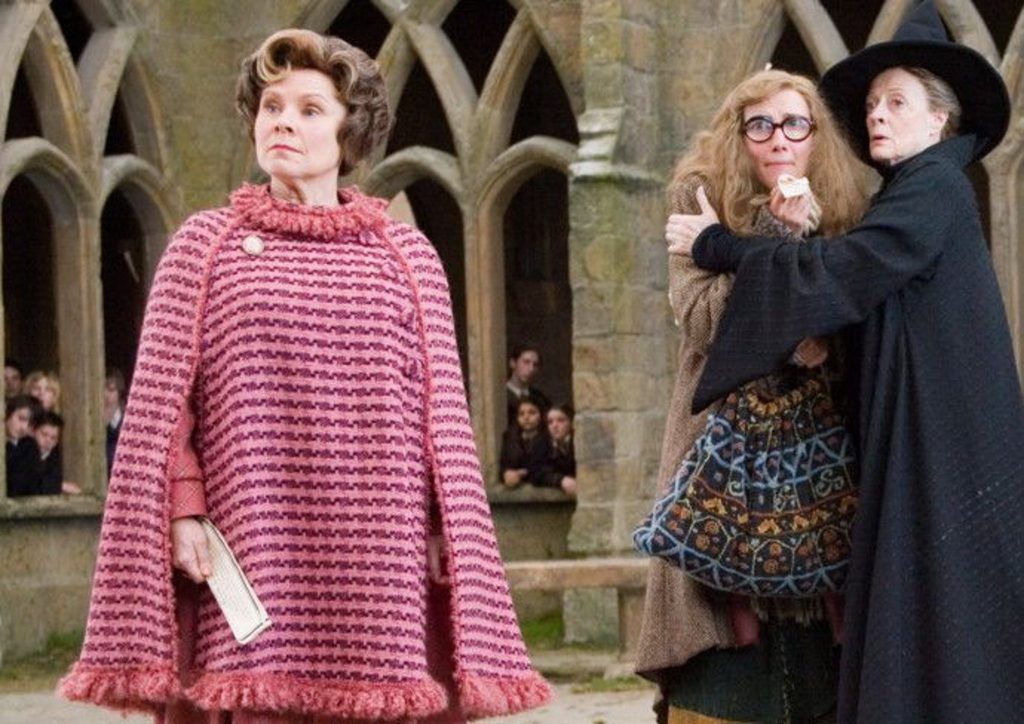
Even Voldemort, the psychotic, amoral killer, has a backstory. His conception by deception, his mother’s death and his father’s rejection all wind up eliciting pity rather than enmity from both Harry and Dumbledore. Harry does not kill Voldemort in revenge for his parents’ murders or Voldemort’s other crimes. He instead sacrifices himself to save others from harm by a man so damaged he cannot feel love. Harry’s love for his friends, and empathy with a fellow orphan, motivates him rather than a desire for retribution against an enemy and adversary he has every right to hate and wish dead.
We see nuances of character not just in the realm of good and evil (“the world isn’t divided into good people and Death Eaters”) but in terms of reliability, skill, trustworthiness. Mundungus Fletcher is a weak and unreliable character, a thief. But he does have some loyalty to Dumbledore, despite his shortcomings. Sybil Trelawney is in many respects the “old fraud” she is called, and Divination is a “woolly” subject. But she is also a true Seer who makes the occasional accurate prediction. Luna Lovegood is initially a bit gullible in defence of her father’s wilder Quibbler nonsense but she later proves to be insightful and useful at thinking outside the proverbial box.
Nor can we forget Argus Filch and Petunia Dursley, who are both understandably jealous of those with magical powers. Would I have behaved any better if I had been a Squib or had a magical sister? I think the jealousy would have eaten me alive and ultimately destroyed my life, although I hope I would not have taken my bitterness out on innocent people the way those two did. But as much as we may deplore their treatment of others, we have some empathy for them, some understanding of why they behave the way they do.
Which brings me to Umbridge. She deviates from the patten of nuanced characters with backstories. We know nothing of her background beyond her desire to pass off the locket as a pureblood family artefact. She is purely evil, with no nuance to her character, no depth, no redemption, nothing but malice through and through. There is no personal growth, no change in her even after Dumbledore rescues her from being gang-raped by the Centaurs. She is the same evil witch until the moment she is thrown into Azkaban, where one hopes she is incarcerated for the rest of her life. Of course, without the Dementors guarding it anymore, Azkaban is likely to be a much more humane prison in the future. One assumes there will be many reforms to the magical criminal justice system, with modernisation of the prison foremost amongst them. She will certainly serve her sentence in much better conditions than those to which she gleefully subjected her fellows when she had power over them.
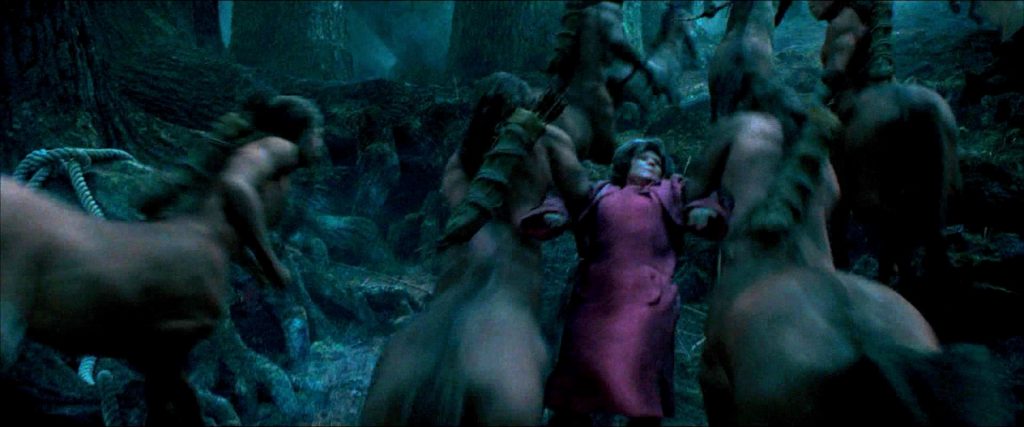
The reason I think she is the most weakly-drawn character is the series is because she comes across as a two-dimensional comic book villain. She is purely evil, a sadist with no known reason for her having developed such a hideous, malignant character. She takes pleasure in hurting others. Why? She hates magical non-humans and condescends to them. Why? She tortures Muggleborns with evident delight. Why? She is not, technically, a Death Eater initially, but she really comes into her own when they take over the Ministry and give her sadistic cruelty free rein. She is, in a sense, worse than a Death Eater because the wizards caught up in that cult of personality around Voldemort often had very human motivations for seeking power and protection and status. She clearly relishes power but in a rather obvious, predictable, cartoonish way. What motivates Dolores to be so cruel and sadistic? That motivation for evil behaviour and attitude is a question we can answer about every other character in the series except her. When other characters leap off the page, lifelike and relatable and human, she is inscrutable. Just pure malevolence personified.
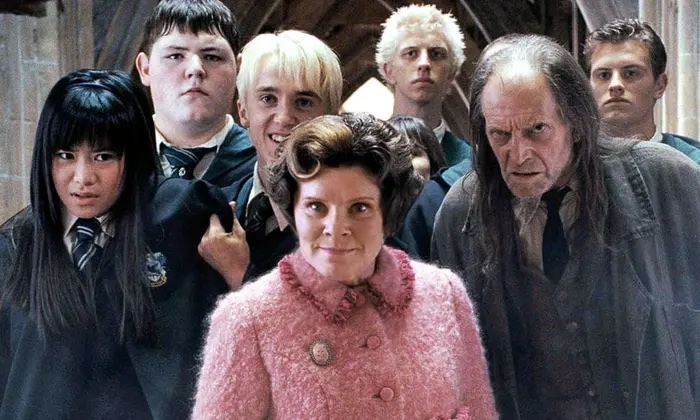
As a rigid neat freak with severe, clinically diagnosed OCD, I often quip that, “Much like Dolores Umbridge, I must have order.” But I quickly follow that line up with, “…that’s the only thing we have in common!” I sometimes wonder if she has OCD, but I do not find it relevant to her depraved malevolence. OCD emphatically does NOT make one evil, just a bit rigid in one’s thinking, which is true of a lot of characters, good and bad.
Supposedly the only character based on a real person was Gilderoy Lockhart. But one can easily picture most of the other characters being based plausibly on real people, up to and including Voldemort…except Umbridge.
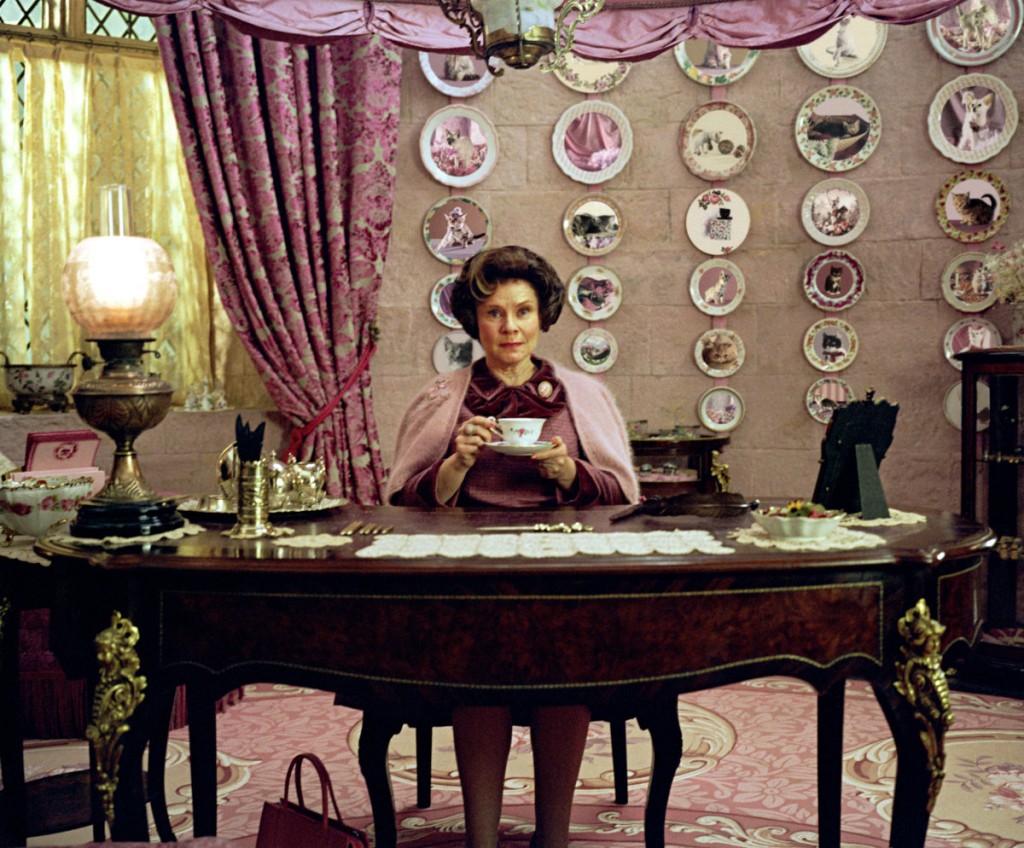
What do you think? Is Umbridge the least formed of the Harry Potter characters, a mere two-dimensional comic book villain, or am I missing something?
